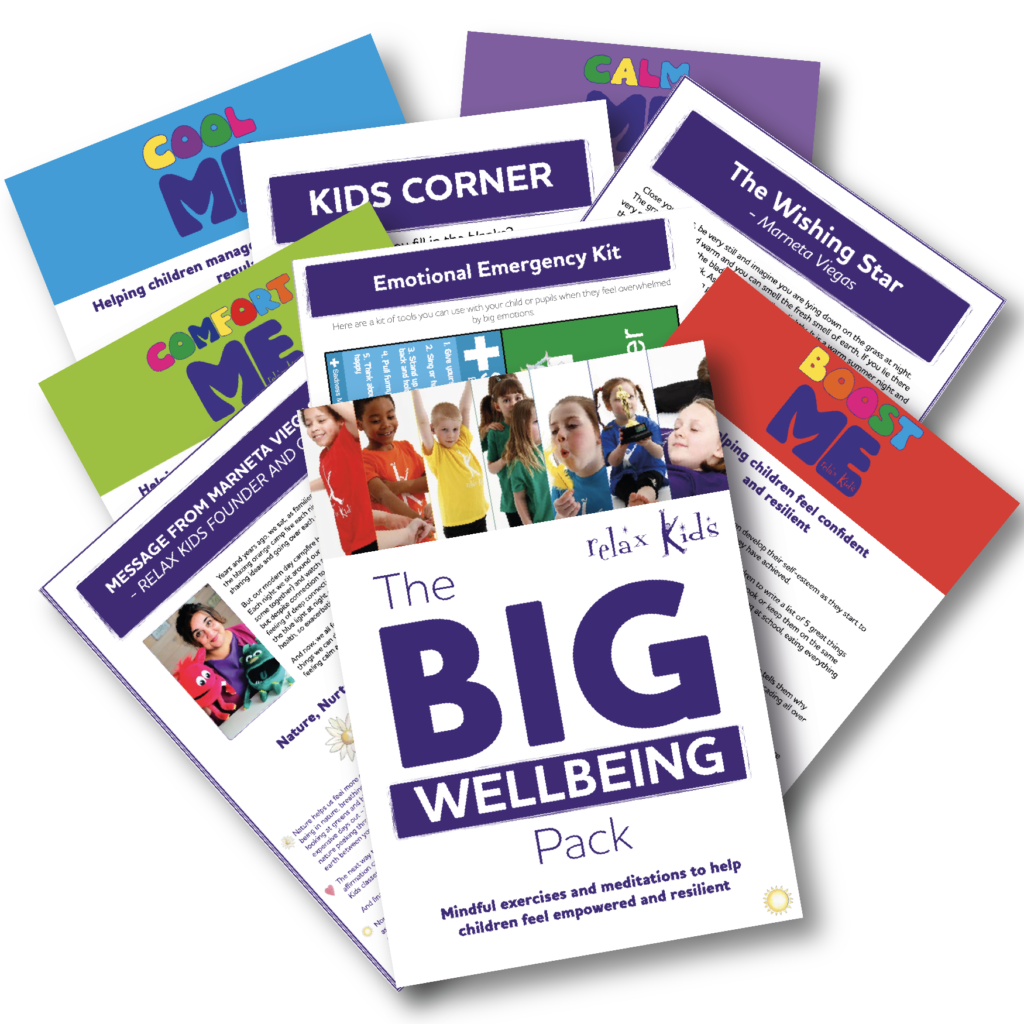[cjtoolbox name="Current Coach"]
Self-regulation resources and training to support children’s mental health
Self-regulation resources and training to support children’s mental health

Helping children manage stress
Children are under more pressure and stress than ever. A ChildLine National Exam Stress Survey revealed that 96% of the 1300 children who completed the survey felt anxious about exams and revision. Noise, pollution, technology, peer pressure are all tapping away at their mental, emotional and physical health. There is no doubt that stress is taking a toll on our children’s health and well-being.
Mindfulness and relaxation exercises can help your child manage stress and anxiety, sleep better, concentrate, feel more calm and in control. It is easy to integrate into their day and it will become a habit that children enjoy.
Relaxation is not just an enjoyable and calming extra curricular activity but is becoming as essential as exercise to help the mind and emotions cope from the constant babble of knowledge and digital commotion which consistently occupies the brain. Switching off time and unplugging is crucial allowing the brain to rejuvenate.
He now takes himself off without being asked, when he feels himself getting angry. He will go upstairs and listen to a relaxation story to help calm himself down.
Natalie has a ten year old son with Auditory Processing Disorder and traumatic stress disorder resulting in extreme anxiety. She has been using relaxation techniques with him for a number of years and noticed that he is able to self regulate.
When we are under excessive pressure, the body goes into the flight or flight mode where the sympathetic nervous system kicks in setting off increased metabolism, blood pressure, breathing and heart rate. The stress response is designed to help us cope when we are under threat but repeated releases of the nasty cocktail of adrenaline and cortisol create uncomfortable physiological changes such as headaches, upset stomachs, shallow breathing, racing heartbeat and muscle tension. Most children are now under constant stress with the increase of school tests, fast moving and full timetables as well as family problems and peer pressure which can increase anxiety.
Kate Connell started using relaxation techniques with her six year old daughter who was experiencing generalised anxiety and acute separation anxiety. Her sleeping eating and energy for life were all affected and she went from being a bouncy smiley confident girl to an anxious timid and nervous girl. We started listening to relaxation CDs together and practised doing some breathing and affirmations. Her sleep soon improved and we were able to talk through her worries. She is now the bouncy confident girl she used to be and still listens to the relaxation CD every night.
Relaxation gives children an opportunity to relieve some of this pressure, providing much needed time out to recharge and restore. Regular relaxation brings the body back to a point of rest allowing it to regulate the stress hormones and allows the autonomic nervous system functioning return to normal. This in turn helps improve concentration and focus. Learning relaxation provides children with the skill to not only recognise stress but gives them a tool kit to manage stressful life situations.
Gillians Fitzsimmond’s twelve year old daughter was quite resistant to relaxation but starting trying simple techniques. In an exam, she became aware of her feet and planted them firmly on the floor. She took a few deep breaths in and said to herself; the answers will come; and moved on to something else. Within ten minutes, the answers had come and she managed to complete the task without stress. My other daughter has special needs and has being doing breathing techniques to manage her anxiety around dogs.
Teaching relaxation techniques to children gives them an opportunity to self regulate and be in control of their emotions.
Kath Rutledge started using relaxing with her daughter three years ago. Over the years she has noticed a marked change in her daughter’s confidence and sleeping habits. Her five year old daughter now sleeps right through the night after practising regular relaxation at bedtime where she used to wake up at least three to four times each night. Not only is she sleeping better, but there has been a marked improvement in her confidence levels.
Introducing regular relaxation to your home will help hyperactivity, behaviour management and sleep. It is easy to do and requires little equipment. Find simple relaxation exercises for children than are fun and creative to engage your child. Ideally you need a book of relaxations/meditations or a CD. Once you gain confidence you can make up your own relaxation story scripts. Start introducing the exercises when children are calm and then you can remind them to try the relaxation tools when they are anxious. You might find that your children remind you to relax, disappear off to their relaxation corner when they need time out and ask to relax as a family. A relaxed family is definitely a happy one.
Apply Now!
Relax Kids Training


By submitting this form you agree to the Terms and Privacy Policy of Relax Kids Ltd
RELAX KIDS LTD
Merchant House
5 East St Helen Street
Abingdon
OX14 5EG
+44(0)7778 435743
Latest News
New Stories
Affiliate
Become an Affiliate

